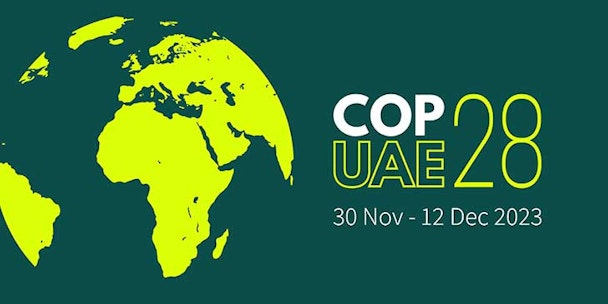The 4 biggest barriers facing sustainable adtech ahead of COP 28
Marion Cardona, chief operating officer and co-founder of IMPACT+, shares the biggest challenges facing a sustainable ad ecosystem ahead of COP 28.

The UN’s 28th Climate Change Conference (COP 28) starts in Dubai today (November 30). It’s a huge opportunity for each industry to reflect on what they’re doing to tackle the global climate crisis – and how they’re falling short. With the latest UN report demanding “climate action on all fronts: everything, everywhere, all at once,” the sense of urgency could not be more apparent.
And the ad industry certainly has an important role to play. Not only does Adland have the money and influence to drive more sustainable habits and behaviors from consumers, but it also leaves a sizable carbon footprint. One of the most significant is digital advertising, which generates around the same GHG emissions as flying from London to New York 60m times yearly.
With another climate conference on the horizon, the good news is that it’s a topic that has become a huge focus. Barely mentioned before 2021, there’s been a real acknowledgment across the industry recently of the digital ecosystem’s impact on the environment and the need to do something about it.
Advertisement
Primarily fuelled by increasing consumer appetites for brands that are kinder to the planet, sustainability has become a key consideration for digital marketers around the globe.
But despite all the talk, more concrete action is needed. According to the IAB, more than half (51%) of companies are still not tracking the GHG emissions generated by their digital ads. And there’s an urgent need to avoid warm words turning into yet more hot air (the last thing the planet needs).
So, with COP 28 now in full swing, what is holding up progress? And what can be done to ensure we hit our Net Zero targets in the next few years? Here are our suggestions:
1. Erosion in public trust around sustainability claims
Stricter greenwashing laws have led to a rapid rise in ads being banned for making misleading environmental claims.
That, fuelled by controversial campaigns such as Apple’s “Mother Nature” ad, has eroded trust among the public over whether they can truly believe any claims brands make about how sustainable they are. A recent report suggested more than half of consumers say brands’ environmental claims have misled them -- and that desperately needs to change.
Advertisement
A more robust industry response to protect consumers is needed, with more in-house training for brands and agencies on communicating sustainable progress as a priority.
2. Education, education, education
However, educating the industry about making more sustainable choices goes beyond greenwashing training.
Digital markers also need a good understanding of how each decision they make can significantly impact the environment. After all, digital marketers are not climate scientists – and will need support and patience to make a difference truly.
They also need resources -- whether through more in-depth technical training or access to specialized task forces composed of product and tech specialists.
Suggested newsletters for you
Evaluating and reducing the environmental impact of digital ads is a relatively recent campaign consideration the industry is still trying to get to grips with, and establishing best practice principles and processes will take time to finalize and roll out.
3. Industry hesitates while waiting for standardized carbon count
Evaluating the environmental impact of digital advertising hasn’t been possible for very long. Often considered greener, the complexity of the digital adtech industry has made it difficult to understand pollution mechanisms, making it harder for industry players to come together to tackle global emissions as part of a unified strategy.
To help, IMPACT+ is working with global industry bodies, including Ad Net Zero and the WFA, to finalize a unified methodology for counting carbon and establishing industry best practices around adtech sustainability.
But despite the huge, significant progress that could be made right now on reducing the environmental impact of digital ads, some across the industry would prefer to wait until a framework is in place. But we don’t have time to wait – we need action.
4. A lack of political support and consistency
You only need to trawl through some of the headlines from worldwide to see how polarised sustainability has become as a topic.
In the UK, Prime Minister Rishi Sunak recently watered down some of Britain’s net zero pledges in a cynical bid to win back voters. At the same time, public debate has been fired up by the tactics employed by protest groups such as Just Stop Oil and the expansion of eco schemes such as ULEZ in Greater London.
Meanwhile, there is a growing corporate trend of “greenhushing”, in which companies hide their climate commitments because of fears of being attacked by those on the left (for not doing enough) and those on the right (for doing anything at all).
It’s led to cynicism and confusion at a time when corporations and governments should be pulling together toward a unified goal. What’s needed is more leadership from politicians at a critical time, plus a more consistent, less opportunistic approach toward sustainable growth.
Climate needs to be a priority.
In conclusion, the industry still has a long way toward a more sustainable digital ad ecosystem. Only when companies are willing to commit the resources, budgets and urgency needed will Adland be able to play its part in addressing the climate emergency head-on.

